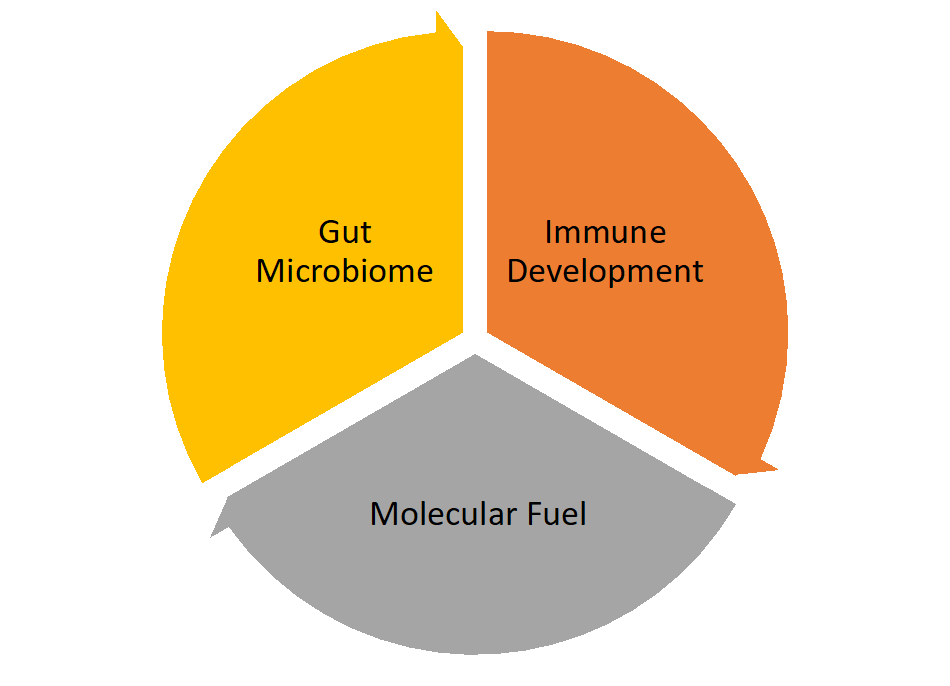Gut Microbiome Modulation and Its Consequences to Infant Development
A special issue of Microorganisms (ISSN 2076-2607). This special issue belongs to the section "Gut Microbiota".
Deadline for manuscript submissions: closed (30 April 2023) | Viewed by 9925
Special Issue Editors
Interests: mother–infant dyad; immune ontogeny; early life vaccines; innate immune response; vaccine adjuvants; maternal immune transfer; pregnancy; vaccine clinical trials
Special Issues, Collections and Topics in MDPI journals
2. Foods for Health Institute, University of California, Davis, Davis, CA, USA
Interests: human milk; infant microbiome development; molecular fuel; metabolism; nutrition
Special Issue Information
Dear Colleagues,
The aim of this Special Issue is to assemble a series of articles that address the current understanding of the impact of microbiota in early life, from the features that colonize and guide the microbiome to its interplay with host development, specifically immune system, nutritional transitions, and metabolic contributions; to modes of nutritional influence and maternal factors on the infant microbiome and development; to molecular fuel and microbiome adaptation to nutritional transition.
We welcome Original Research articles and Reviews but, other article types welcomed by the journal will also be considered such as Perspective, Methods, Mini Reviews and Brief Research Reports. Submissions focusing on, but not limited to, the following subtopics related to the association between the human microbiome, early life ontogeny/development, metabolism, and nutrition will be considered:
- Evolutionary history of infant intestinal health and microbiome
- Milk; the mechanisms of support of the inoculation, maturation, and functions of the infant microbiome
- Maternal influence on the infant microbiome and development
- Modes of nutritional influence on the infant microbiome and development
- Microbiome adaptation in the transition from breastfeeding/formula to solids foods
- Molecular Fuel: the metabolites of microbes and their targets of action
- Parallels of microbiome and immune development
- Optimal experimental design(s), study design(s) to understand microbiome optimization
- Analytics, methodology of microbial ecology and metabolism, accurate monitoring of infant development and long term outcomes

Manuscripts covering these areas of knowledge, and others related to human microbiome, early life ontogeny/development, metabolism, and nutrition, are of interest for this Special Issue.
Dr. Kinga K. Smolen
Dr. Bruce German
Guest Editors
Manuscript Submission Information
Manuscripts should be submitted online at www.mdpi.com by registering and logging in to this website. Once you are registered, click here to go to the submission form. Manuscripts can be submitted until the deadline. All submissions that pass pre-check are peer-reviewed. Accepted papers will be published continuously in the journal (as soon as accepted) and will be listed together on the special issue website. Research articles, review articles as well as short communications are invited. For planned papers, a title and short abstract (about 250 words) can be sent to the Editorial Office for assessment.
Submitted manuscripts should not have been published previously, nor be under consideration for publication elsewhere (except conference proceedings papers). All manuscripts are thoroughly refereed through a single-blind peer-review process. A guide for authors and other relevant information for submission of manuscripts is available on the Instructions for Authors page. Microorganisms is an international peer-reviewed open access monthly journal published by MDPI.
Please visit the Instructions for Authors page before submitting a manuscript. The Article Processing Charge (APC) for publication in this open access journal is 2700 CHF (Swiss Francs). Submitted papers should be well formatted and use good English. Authors may use MDPI's English editing service prior to publication or during author revisions.
Keywords
- human milk
- evolutionary of infant microbiome
- maternal influence on microbiome
- infant microbiome (development)
- microbiome optimization
- metabolism
- infant immune ontogeny
- modes of nutrition
- microbiome adaptation
- molecular fuel
Benefits of Publishing in a Special Issue
- Ease of navigation: Grouping papers by topic helps scholars navigate broad scope journals more efficiently.
- Greater discoverability: Special Issues support the reach and impact of scientific research. Articles in Special Issues are more discoverable and cited more frequently.
- Expansion of research network: Special Issues facilitate connections among authors, fostering scientific collaborations.
- External promotion: Articles in Special Issues are often promoted through the journal's social media, increasing their visibility.
- Reprint: MDPI Books provides the opportunity to republish successful Special Issues in book format, both online and in print.
Further information on MDPI's Special Issue policies can be found here.






